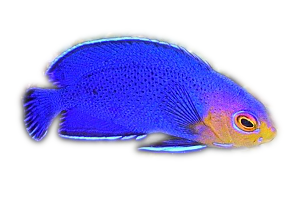
By Bob Goemans

Likely Reef Tank Suitable
Likely Fish-Only Tank Suitable
Range: Indo-West Pacific Ocean: India and Pakistan to Southern Japan, and south to Hawaii and Society Islands.
Size: 12 inches (30 cm)
Natural Environment: Inhabits mangroves, estuaries, seagrass beds and muddy slopes on seaward reefs, and also drifting Sargassum and feeds on minute crustaceans.
General Husbandry: Common in the trade and usually black or brown, but also yellow or cream with large dark spots. Requires an environment that is well-suited to these slow moving fishes, i.e., having slow moving water currents, preferably low light, and structures or large macroalgae growths that can be used to grab-on and support itself.
As to diet, meaty foods consisting of enriched live adult brine shrimp and/or enriched frozen mysis shrimp, and fed several times daily.
Taxonomy:
Order: Syngnathiformes
Suborder: Syngnathoidei
Family: Syngnathidae
Genus: Hippocampus
FYI: Tankmates should be limited to species such as pipefish/mandarins.
These seahorses belong to a group of 10 seahorses called the Kuda Complex, which may contain 10 separate species or sub-species.
Captive bred specimens available.
Experience Level: Intermediate
Temperament: Peaceful
Diet: Carnivore
Coral Safe: Yes
Fish Safe: Yes
Invertebrate Safe: Yes
Acclimation Time: 30 minutes+
Aquarium Environment: Their own private environment/special tankmates
Tankmates: Peaceful
Minimum Tank Size: 75 gallons
Temperature Range: 72 - 82°F (22 – 28°C)
Specific Gravity: 1.020 - 1.026
pH: 8.0 - 8.5
